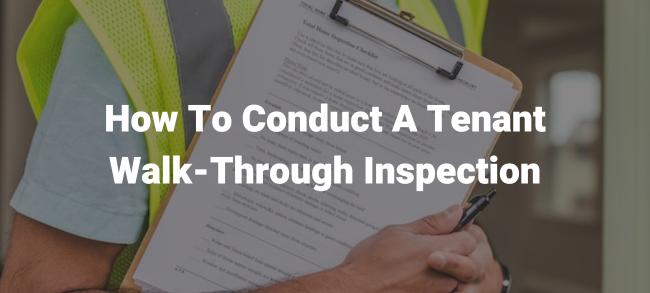Guide to Tenants’ Rights in Florida
In Florida, Chapter 83 of the Florida Statutes governs residential tenancies. Whether you live in a rental property near the beaches of Miami or all the way up in Tallahassee, you’ll need to know about your rights as a tenant. These rights cover different aspects, from landlord entry to the security deposit.
Here’s what you need to know about your rights as a tenant in Florida.
1. Florida Tenant’s Right to Have Residence That’s in Reasonable Condition and Code-Compliant
Florida building and housing codes that landlords comply with include:
- The roof must not leak.
- The stairs must be in good condition.
- The walls must be weather-tight.
- All houses must have working flushing toilets.
- Ceilings, outside walls and inside walls must be in good condition and free from rodents.
- Window panes cannot have holes or cracks.
- There must be adequate garbage storage containers and disposal facilities.
For more information, check Florida’s laws on habitability and residential property.
2. Florida Renter’s Right to Fair Housing
The right to fair housing begins even before an individual affixes their signature to the rental agreement. Ratified in 1968, Florida’s Fair Housing Act prohibits landlords from discriminating against tenants when the latter is:
- trying to obtain financing for a home;
- renting a home, or;
- buying a home.
Under the Act, landlords are prohibited from discriminating against tenants based on:
- religion
- sex
- race
- national origin
- familial status
- disability
- skin color
3. Florida Tenant’s Right to a Security Deposit with Statutory Interest
In Florida, a landlord has the right to collect a security deposit from their tenants. Florida Statute 83.49 details the procedure that must be followed. The procedure covers:
- how much the security deposit is
- when the deposit must be returned to the renter
- how the deposit will be stored
- how a notice must be written after receipt of the deposit
Under Florida’s landlord-tenant law, the landlord is free to charge any amount of deposit. Usually, the deposit is equivalent to one or two months’ rent. The amount may be higher if the rental units have fully furnished units or amenities.
Tenant’s right to have their security deposit stored in a Florida banking institution
Under Florida Statute 83.49(1), renters have the right to instruct the landlord on how the security deposit should be held. For example, you can instruct your landlord to hold your money in an interest or non-interest-bearing account for your benefit.
For interest-bearing accounts, you have the right to get an interest at the rate of 5% simple interest calculated annually, or at least 75% of the annualized average interest rate. The landlord should also notify you upon receiving the interest, usually, 30 days after the payment is done.
Renter’s right to prompt return of the security deposit
If no deductions are taken from the deposit, the landlord will return the security deposit within 15 days after you vacate the premises. If there are some deductions, it should be around 30 days.
4. Florida Renter’s Right on Notice Before Entry by the Landlord
Tenants have a basic right to privacy in their rental homes. That doesn’t mean, however, that the landlord cannot enter as they please. Under the law , landlords can enter your premises under the following circumstances:
- To show the property to prospective renters, contractors or purchasers
- During a tenant’s extended absence, but only if the tenant failed to notify the landlord of the absence, or the renter has stayed for one-half the time for periodic rental payments
- In lieu of a court order
- To make needed inspections and repairs
- In case of emergencies, such as serious water leaks or fire
In most cases, the landlord must give you notice. Under Florida rentals laws, the landlord must give you at least 12 hours’ notice when making repairs. But if you abandon the unit or in case of emergency, the landlord doesn’t need to give advance notice.
5. Renter’s Right on Proper Notice in Case of Florida Eviction or Lease Termination
The landlord must give you notice in case of an eviction or termination of the lease. For example, the landlord may want to evict you due to rent issues. You may have also violated the terms of the lease agreement.
Whatever the reason, the landlord must give you a written notice explaining the reasons for his actions. Furthermore, the notice must follow a certain procedure. For example, the written notice must:
- Be relevant to the eviction. There are various notices depending on the violation committed.
- Deliver the eviction notice to the property in person or through certified mail.
- Include a certain language specified in the law.
- Wait for 3 days to end before filing an eviction lawsuit.
6. Tenant’s Right in Florida After Landlord Retaliation
Florida makes provisions on revenge between tenants and landlords. The purpose of this clause is to minimize conflict between the two parties.
Some landlord actions that are considered retaliation include:
- Refusing to make needed repairs
- Filing to evict a renter
- “Constructively evicting” the renter
- Hiking the rent amount
A tenant who does the following may trigger landlord retaliation.
- Pursuing a right granted to them by Florida Federal Fair Housing laws
- Issuing the landlord notice to terminate the lease because of a deployment (if you’re a service member)
- Complaining of poor living standards to relevant authorities
- Joining, supporting or creating a tenants’ union
Knowing your rights as a tenant in Florida is important. We highly recommend consulting with the appropriate government agencies and/or qualified attorney should you find yourself in a legal situation involving your tenancy.










